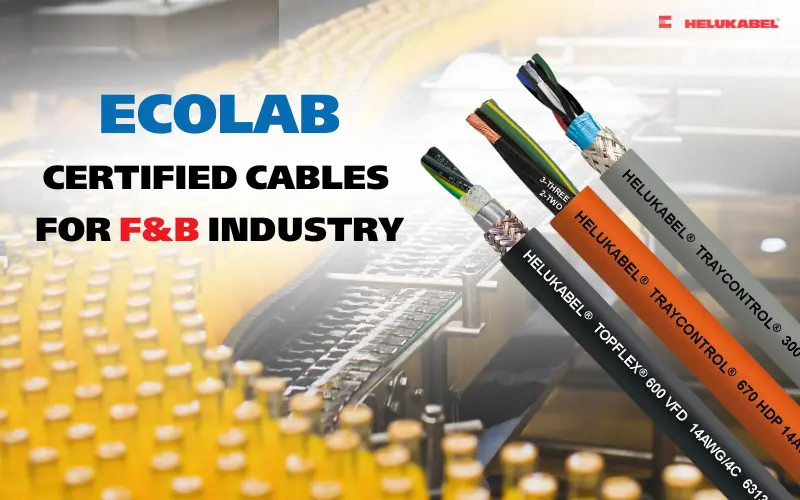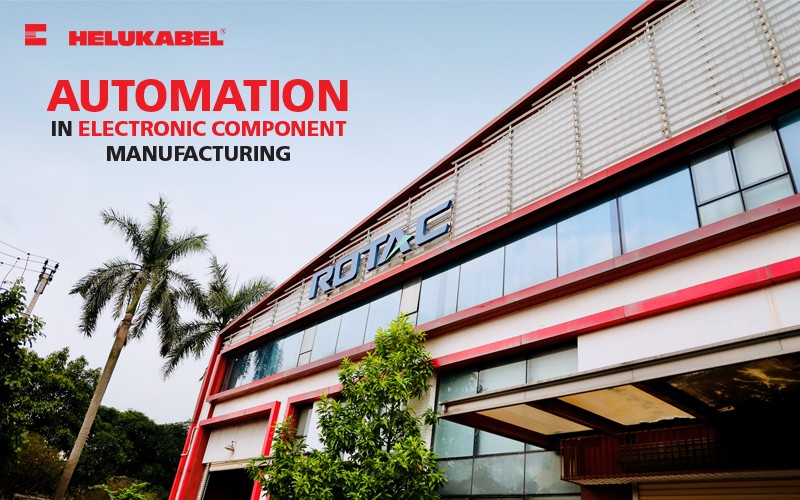Automation, is it the key to success for the F&B industry?
Automation, is it the key to success for the F&B industry? To discuss this issue, please follow our story to meet and talk with Mr. Do Minh Toan, Lean Trading and Engineering Services Company Limited, one of our partners.
_newsroom_big.png)
In the context of the market experiencing many fluctuations after the COVID-19 pandemic, many businesses are trying to find new solutions to increase production, optimize costs to survive, and develop. In this situation, automation is the key to helping businesses, especially the F&B industry, achieve the above goals, save labor, increase productivity, and be economical.
To discuss this issue, please follow our story to meet and talk with Mr. Do Minh Toan, Director of Lean Trading and Engineering services company limited, one of our partners.
Do Minh Toan is an engineer with more than ten years of experience in the F&B (Food and Beverage) and FMCG (Fast Moving Consumer Goods) sectors. After a while as an engineer at companies like Nestle and Mondelez, with his inherent experience and desire to help businesses effectively apply automation for rapid growth, Toan established Lean Trading and Engineering Services Company Limited in 2016.
_any_small-2.png)
*As a consultant for factories applying automation, how would you define automation in a manufacturing plant in the most understandable way?
When businesses want to produce any product, if they don't apply automation, which means they need human resources and rudimentary tools, thus, people will be the main factor in production. And automation is the use of machines and equipment that operate automatically instead of humans to make quality products quickly and efficiently.
*In your opinion, how is the current application of automation in F&B factories in the Vietnam market? Is this a positive sign to help businesses break through and grow again after the Covid-19 pandemic?
Currently, the development of automation in the F&B industry is a trend that many businesses are interested in. When meeting and consulting with customers, I noticed that customers have paid special attention to investment in the transition from semi-automatic to full automation in the production plant. The goal of enterprises when applying automation production is to increase productivity and competitiveness compared to competitors and to bring the highest satisfaction to customers.
*What specific changes has the application of automation brought to manufacturing plants?
Firstly, when the application of automation is that the efficiency and capacity of the factory will increase. For example, a semi-automatic factory in 1 month can only produce 100 tons of products, but with the application of automation, the number of products can be increased dramatically from 200-300 tons.
Besides, factory automation helps increase the ability to meet customer demands. For example, in the F&B and FMCG industries, products are direct human consumption and human demands also change quickly. Therefore, only automation applications can help businesses meet the constantly changing expectations of customers, helping to increase sales revenue targets.
_any_small.png)
*We understand the benefits that automation can bring in production as you shared. But to convert and apply effectively, how do businesses face the challenges?
Transitioning to factory automation poses a big challenge for factories that use only human resources and have never applied automation in production. They need to invest a lot of money to change the entire production system and employee work habits.
Besides the initial investment cost for the factory, the next challenge is maintaining an effective automation system for a long time. This challenge depends mainly on the human factor. Therefore, enterprises need to plan personnel training to adapt and maintain factory automation.
In addition, enterprises also face challenges in finding suppliers, who provide the latest machinery and technology and selecting quality contractors to build automation systems.
*To solve the challenges you mentioned, what solutions have businesses had?
Businesses should proactively address the challenges posed to help the automation transition go smoothly and efficiently. First, business owners must have a clear goal for a specific time.
For example, they should have the total revenue and output required in the next 2-3 years. After having data exactly, businesses can find suppliers and solutions that match their set goals and ensure revenue and get profit targets.
The F&B factory will be divided into main areas such as processing, filling, packing, and warehousing... most of these areas need to apply automation to optimize the production process output, saving time and labor.
OTHER POSTS >>> WHAT ARE THE ADVANTAGES OF STEEL DRAG CHAINS?
*In the food and beverage production process, if there is an error in data transmission from the control room to the production department, this will lead to a series of errors in the output products. Therefore, in your opinion, is this a biggest problem when applying automation in production?
An error in data transmission is a big problem because when this error occurs, the entire production system will be affected, leading to economic loss, especially affecting customer satisfaction. Signal transmission errors can come from data or machines. Therefore, businesses should find out the reason to get the appropriate treatment to avoid damage.
Cables are essential to ensure the correct signal transmission. There are two main products such as signal cables and power cables. In automation, the signal is responsible for transferring the signal from machine A to machine B. This transmission requires high accuracy and reliability so that no errors occur in the system.
_any_small.png)
*What do customers usually ask for when choosing power cables for production plants?
The customers only have a general need for safe and accurate signal transmission for cables. However, as a solution provider, I will be interested in criteria such as operating environment and installation conditions. For example, in a high-temperature environment, often with signal interference, oil leakage, etc. The choice of power cables will be different, the control cables must have special features to work well in harsh conditions, as well as must-have features specific to machines and automation equipment.
*As a supplier of automation solutions for F&B factories, what advice do you have for businesses that are intending to apply automation?
Applying automation to the manufacturing plant is a legitimate need of every business. Automation may be the only way to increase competitiveness, increase productivity, and save labor and costs. To effectively adopt and transform production automation, businesses need to have clear goals within a specific timeframe and choose the right solutions to deliver the desired results.
*In your opinion, what is the trend of automation transformation in production in 2023?
It can be seen that in 2022 due to the Covid-19 pandemic and the global economic crisis, cash flow and supply chains have fluctuated, so businesses have faced many challenges in maintaining and developing companies. In my opinion, in 2023, the trend of automation transformation will continue to increase to help businesses optimize their production processes, and adapt to the current trend. At the same time, investors and contractors will also recognize and evaluate specific situations to work with businesses to solve challenges and develop together.
In addition to the above sharing, Toan added that in 2023, Lean company will set specific targets, increasing the number of customers in the F&B industry and expanding the market not only in the Southeast but also in the Central and Western regions. Besides, Lean company expands product supply to bring comprehensive solutions, increasing competitiveness.
At the end of the conversation on the topic "Automation in F&B industries", we, HELUKABEL Vietnam would like to express our sincere thanks to Mr. Do Minh Toan for his valuable sharing. We wish Toan and his company continued success to help businesses apply automation successfully and develop sustainably in the future.
OTHER POSTS >>> UP IN THE AIR WITH VINPEARL SKY WHEEL




